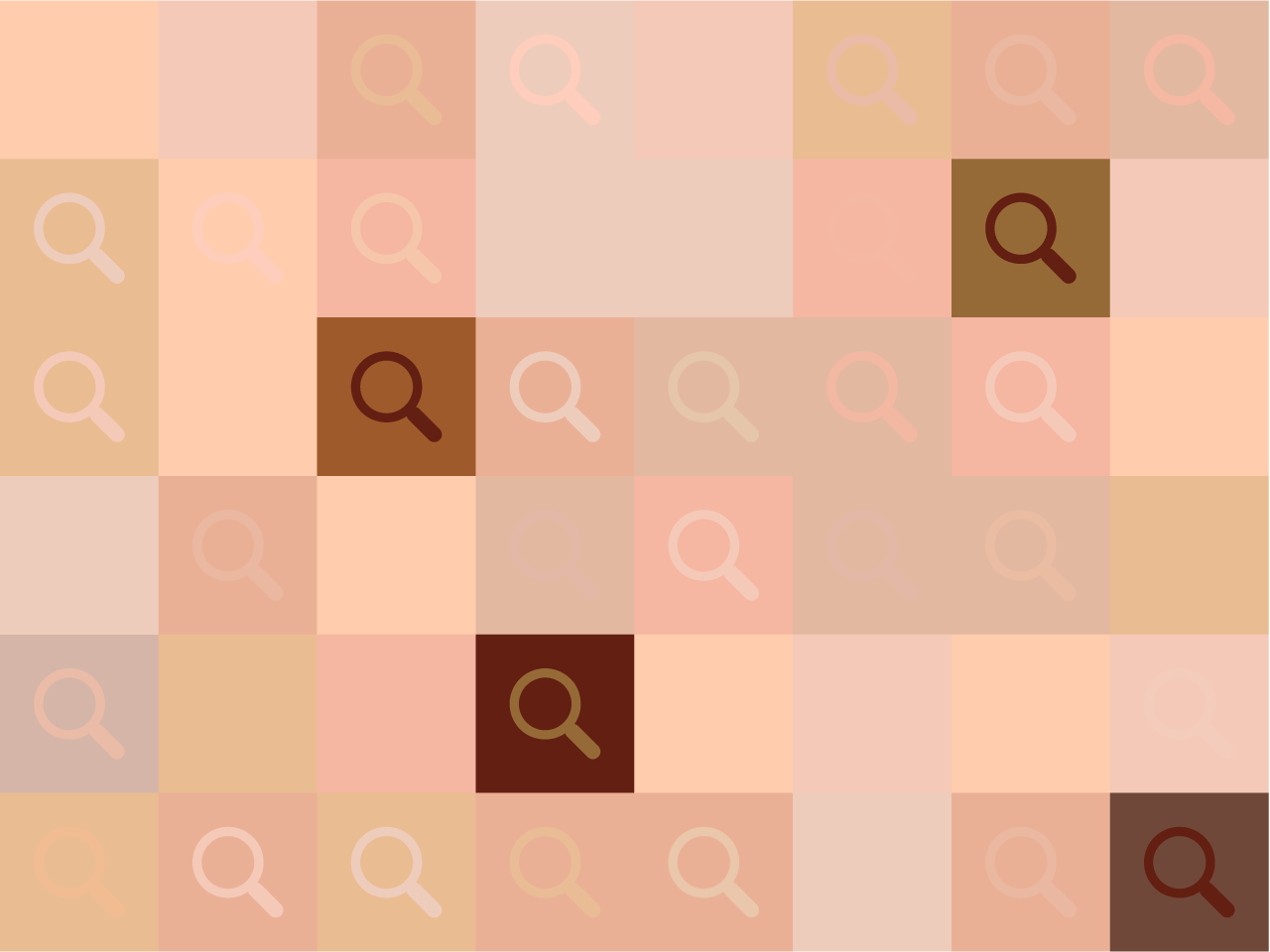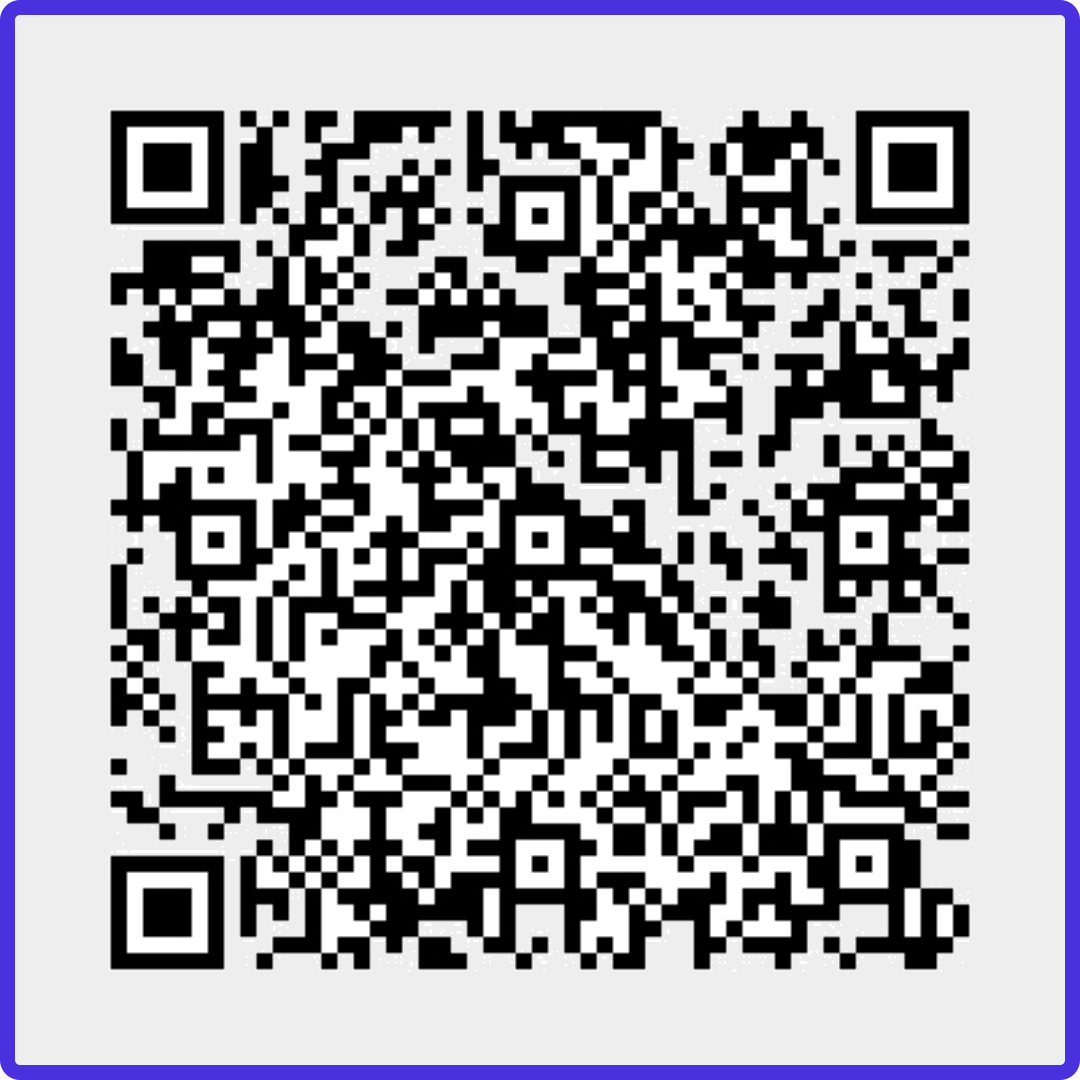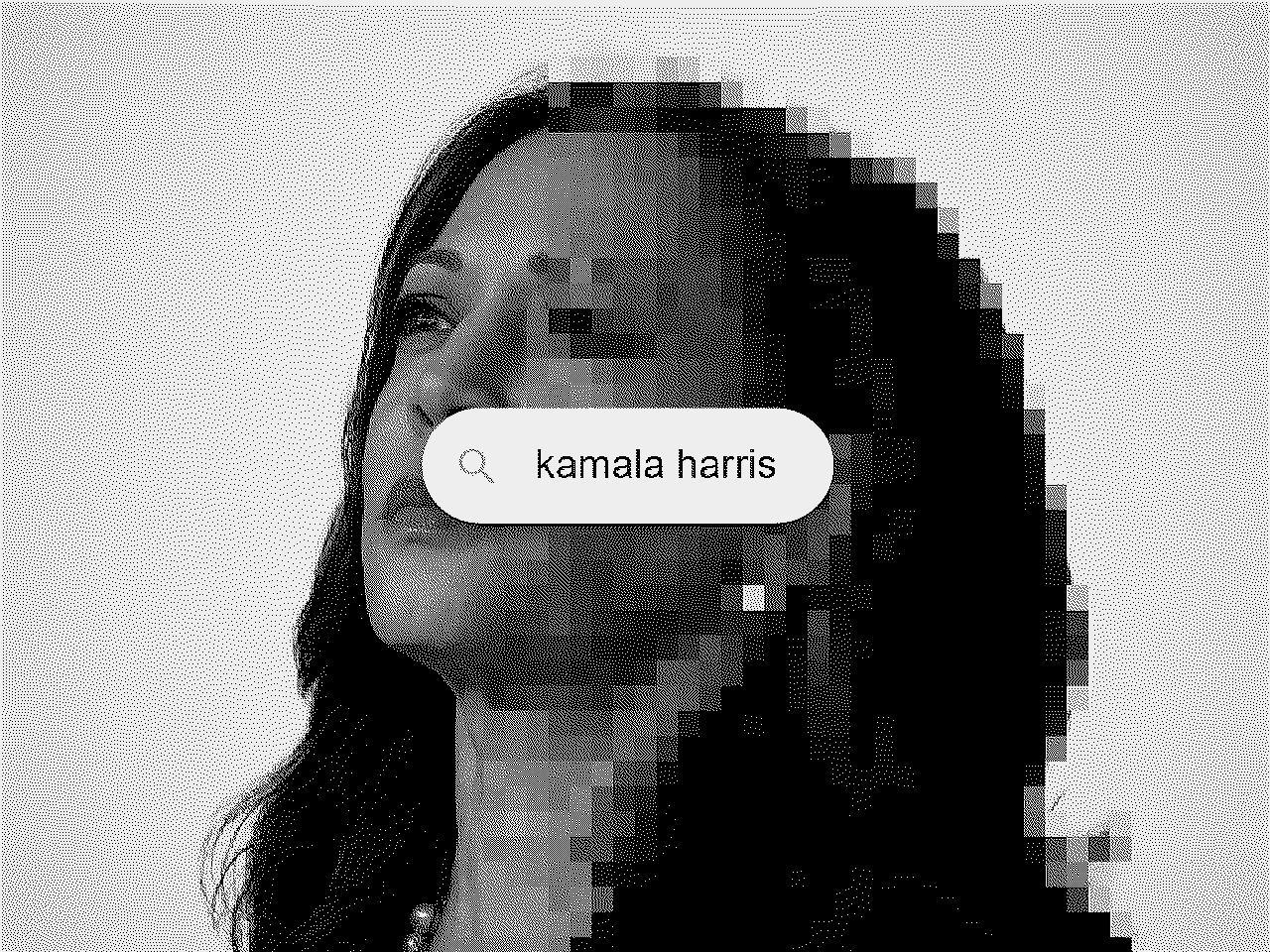Receba nossas newsletters
É de graça. Só tem coisa fina, você vai curtir!
Leia esta reportagem em português.
Black scientists have been organizing to gain more influence on social networks, at a time when scientific dissemination as a whole has grown in notoriety and scale, according to Núcleo’s research on groups and professionals who promote anti-racism in science.
There are already signs of an increase in the number of posts with terms related to the promotion of Black scientists, especially on Facebook and Instagram: between 2017 and 2019 only 22 posts with tags related to anti-racism in science were found on these two networks, but from 2020 to now there are already 192 and counting.
On Science Pulse, a Núcleo platform that monitors scientists' profiles on Twitter, only seven publications mentioned at least one of the searched hashtags: #cientistasnegras (#blackfemalescientists), #cienciapreta (#blackscience), #ciencianegra (#blackscience), #negrosnaciencia (#blackpeopleinscience), #cienciatapreta (#scienceisblack) and #cientistasnegros (#blackscientists).
The figure is not that large yet, but as more professionals join social networks and venture into scientific dissemination, these campaigns may gain momentum.
THIS MATTERS BECAUSE…
- Through these hashtags, the Black scientists' movement in Brazil starts to become more visible on social networks, increasing representation and serving as an example for young Black scientists.
- The low number of Black scientists in the country is yet another consequence of Brazil’s racist structure. And it is scientific production itself that loses out in this. A greater inclusion of races and genders will only enrich it.
FEW TAGS IN PORTUGUESE
Although promising, this data is still timid. But why are these tags still sparsely used? Don't Black scientists use social networks? Do Black scientists not necessarily want to identify themselves by the color of their skin? Are there few Black scientists in Brazil?
For virologist Anderson Brito, who has studied at the Imperial College London (England) and at Yale University (U.S.), there is little anti-racist content about science in Portuguese for several reasons, some more obvious than others.
Yes, we lack Black scientists in Brazil. The movement for Black people in science is slowly getting stronger and not everyone feels the need to be identified by the color of their skin.
"I would add that, even beyond tags that denote political engagement, I only know of a few science hashtags in Portuguese (from any field or with any goal) that have established themselves in Brazil, such as #SciTwitter, #AcademicChatter have in English," said Brito, one of the guests at the online event Black Scientists, organized by Núcleo in partnership with the Liga de Ciência Preta Brasileira (Brazilian Black Science League), the Serrapilheira Institute and the Fórum de Reportagem sobre a Crise Global de Saúde (Global Health Crisis Reporting Forum) on July 30.
The virologist's opinion was endorsed by Katemari Rosa, a Black LGBTQIA+ woman, a physics professor at the Federal University of Bahia (UFBA), and a member of the Board of Directors of the Sociedade Brasileira de Física (Brazilian Physics Society).
"I think there are few posts with these tags because the understanding of hashtag use and potential as a tool for online organizing and activism is low [here in this country]. We see the strength of #blacktwitter, in the U.S., for example, but that doesn't happen in Brazil."
This, however, is only the tip of the iceberg — the issue is deep and goes beyond the self-identity aspect of the Black scientist.
"Technologies are discriminatory because they were built within a racist, male-centric, and sexist social context. They are not neutral, because the algorithm reproduces such flaws of social behavior. For us, the lack of diversity is one of the main reasons for low engagement. Most of the employees in this sector are white, straight men from middle and upper social classes," commented biologist Cléslei Chagas, co-founder of the group Ciência Tá Preta (Science Is Black), which he manages alongside Bruno França and Elane Corrêa.
The group did not fail to mention recent cases in which structural racism on social networks became evident, as has just happened with Twitter, which, according to a survey, prioritizes white faces, and Facebook, which associated images of Black people with monkeys.
SOCIAL NETWORK ORGANIZING
The increased organizing by the Black community within social networks coincides at large with the combination of two tragic 2020 events: the coronavirus pandemic and the murder of George Floyd by a police officer in the U.S.
On one end, Floyd's death gave new strength to the Black Lives Matter movement, created in 2013, and boosted the anti-racist movement both on social media and in the streets. On the other end, the pandemic brought visibility to scientists in general, who felt a duty to use their social network profiles to clarify details about the virus and COVID-19 to the population.
"Many friends and family members were feeling lost and anxious about the pandemic. I had something to contribute, so I started using social networks and my personal website for scientific dissemination," said virologist Anderson Brito.
The same motivation is what led Felipe Brito, Luciana Silva, and Viviane Alves to create the Brazilian Black Science League (LCPB) in Mar. 2020.
The trio's idea was to inform Black people about COVID since the disease caused by the coronavirus kills Black and poor people at a higher rate.
"We created this forum for conversation, with live broadcasts on Instagram, to try to be less academic, more informal and accessible," justified biologist Luciana Silva, Ph.D. in cell biology.
“I think scientists should even use TikTok because that's how young people communicate" - Luciana Silva, Ph.D in Biology.
According to the folks at Ciência Tá Preta, the goal of this joint effort to disseminate scientific works by Black professionals is to build a digital quilombo.
"We strongly believe in the idea of 'by us for us' and 'I am because we are' — expressions originating in the Ubuntu philosophy. In light of this, the empowerment of our peers is paramount for us to move forward within an academic and scientific space which we have been historically denied," the group explained in an email interview.
In fact, there is also a tendency for Black scientists to organize themselves via small WhatsApp groups, added professor Katemari Rosa, who does not see a united and homogeneous organization of these professionals as a valid option.
"Black people are not homogeneous and I don't even know if it’s a matter of taking away the invisibility of Black scientists. It suffices to remove the centrality of white people, to remove white supremacy from spaces, which dominates everything and everyone at any cost. I think the role of the Brazilian Association of Black Researchers (ABPN) is extremely important; it has been growing strongly, which is a good sign."
WHAT DOES A SCIENTIST LOOK LIKE?
As doubts about the coronavirus were cleared up, the LCPB started to address other issues besides COVID-19 in its live broadcasts, such as university access, pedagogy, and how Black people relate to their hair.
With this, Luciana Silva, who most often hosts the live broadcasts, hopes to discuss themes that are relevant to boost Black people’s self-esteem and foster the movement of disseminating Black scientists’ works.
All of this to try to inspire young Black men and women to occupy academic spaces by seeing themselves represented by scientists.
What does a scientist look like anyway? When searching for images of scientists in search engines, the algorithm sees them primarily as white. And not just the algorithm, apparently.
"In a group of people who don't know me, it's always a surprise if I say that I'm a scientist because, historically, in this country, Black people only look like servants. People don't see you in other places," lamented the biologist Luciana Silva, who has previously been questioned if she was the nanny when she was with a white child, mistaken for a house cleaner when she opened the door of her house to a stranger, and attributed the label of artist when she goes out well dressed.
"It's not that I can't be a nanny or a housekeeper, because in Brazil there is this mentality that these professionals are less deserving of credit. The problem is that we are reduced to only this group of workers," she regretted.
Silva's words make it clear: on social networks, the lack of tags in Portuguese calling attention to white dominance in science involves much deeper issues, such as the structural racism that permeates Brazilian academia, preventing the normalization of Blackness in the scientific community and the increase of diversity in science — which would only benefit from such inclusion.
Science Has a Racism Problem, admitted the staff at the scientific journal Cell in their June 2020 editorial, when talking about white privilege and racial segregation in academia.
In 2021 and to no one’s surprise, the deans of some of Brazil's most well-known and best universities are still mainly white men.
Universidade de São Paulo: Vahan Agopyan
Universidade de Campinas: Antonio José de Almeida Meirelles
Universidade Federal de MG: Sandra Regina Goulart Almeida
PUC-Rio: Pe. Josafá Carlos de Siqueira
Universidade Federal do Rio Grande do Sul: Carlos André Bulhões
Universidade Federal de São Paulo: Nelson Sass
Universidade Federal do Rio de Janeiro: Denise Pires de Carvalho
The same pattern is observed among college students here and abroad.
At Yale University, where the majority of students are white, Anderson Brito shared, there are two postdoc associations: one for all students and one just for Black students, the Yale School of Medicine Black Postdoctoral Association.
"This association of Black scientists exists for a very understandable reason: segregation is very present. This bothers me deeply. On the one hand I see this positively, because Black people have a safe environment where they can congregate, but on the other hand I mourn the fact that they cannot integrate with others.”
In Brito's opinion, the first thing that must happen to increase the visibility of Black scientists on social networks is a systemic change. "More than tags, we need to have more Black researchers. We are 50% of the population, but we are not 50% of those who do scientific research."
FAR FROM CAMPUS
If they don't do scientific research, it is because they are not in higher education. Of those enrolled in USP, for example, less than 6% declared themselves Black, according to data from the last college entry exams.
In undergraduate courses all over the country, the Anísio Teixeira National Institute for Educational Studies and Research (Inep) shows that there are more than 3.5 million white students against a little over 590,000 Black students. And it is not only the Brazilian higher education system that is afflicted by this, as published by the British institution The Royal Society last year.
"There are bills in Congress that seek to expand racial quotas to graduate studies (master's and doctorate degrees), although some universities have already adopted this policy, such as the State University of Londrina (UEL), in Paraná," observed professor Delton Felipe, director of International Relations at the Brazilian Association of Black Researchers (ABPN).
The association continues to fight for the maintenance of racial quotas in undergraduate studies, since, in theory, the law will be revised in Aug. 2022, on its 10-year anniversary.
For professor Katemari Rosa, one of the first Brazilians to use the #ciêncianegra tag on Instagram in 2018, this scenario will only end if the current socio-political economic order changes.
"Sure, we will always work to combat and try to confront racism, but the order of things is not going to change in this generation or the next. Even so, I am not discouraged. I'm going to keep working to shake things up with people, to reclaim this idea of quilombo that I think is very powerful, because it's a very promising way to at least strengthen ourselves within this racist structure."
Meanwhile, it is always good to remember that the fact that a scientist (or any other professional) is Black does not oblige them to be an activist against racism. Taking on an anti-racist stance also pertains to white people (or at least it should).
HOW WE DID THIS…
We started with a list of hashtags and searched for all posts containing them on Facebook and Instagram via the CrowdTangle API, as well as on the list of Twitter science profiles monitored by Science Pulse.
CrowdTangle is a Facebook tool that provides information about pages (that have over 50,000 likes/followers) and public groups (that have over 95,000 members) on that network, and on Instagram about all public profiles that are verified or that have over 50,000 followers. In processing the data, we eliminated entirely repeated entries, those with the same creation and update time, and those with the same description text.
Science Pulse is a social listening tool from Núcleo that monitors about 1,500 profiles belonging to experts and scientific institutions on Twitter. In the data treatment, we eliminated retweets and kept only posts authored by the monitored accounts.











